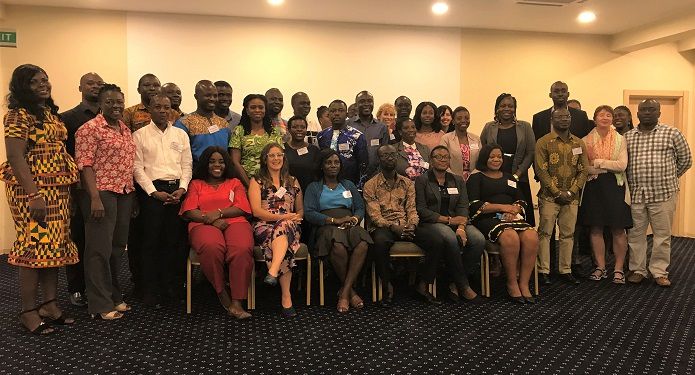
Weak law enforcement still a challenge in curbing exploitative labour practices
Weak enforcement continues to undermine efforts to tackle exploitative labour practices in the forestry sector.
Despite an elaborate constitution and other laws that meet international requirements, Ghana's lack of effective regulation enforcement impedes sustainable agricultural production at the national and international level.
According to Mr Clement Kojo Akapame, the international market notably the European Union (EU), now require producer countries like Ghana to meet certain mandatory benchmarks that include human rights protection in their supply chain processes.
Mr Akapame, a law lecturer at the Ghana Institute of Management and Public Administration (GIMPA) explained that private companies are expected to undertake steps to respond to EU market restrictions and prohibitions for agricultural products that exploit minors on commercial farms.
As part of ensuring stakeholders meet these international requirements, a review of relevant documents including the constitution, legislation, policies, judicial decisions, country reports, international treaties taking into consideration economic and cultural implications was initiated.
The evaluation of these documents conducted by Mr Akapame found out Ghana faces little or no difficulties with regards to agricultural exports if stakeholders in the sector respected domestic laws which already meet international standards and protocols.
At the Cocoa and Human Rights Seminar, organised by Forest Trends and EcoCare Ghana last Thursday Mr Akapame noted that EU-related sanctions have the potential create a significant impact on Ghana's domestic economy and could curb its access to greater market openings across the world.
The seminar which brought together government stakeholders, private sector NGOs deliberated on child labour and hazardous work environment on cocoa farms and highlighted on collaboration to find meaningful ways to alleviate the challenges.
Mr Akapame, who is also a Consultant at TaylorCrabbe Initiative explained key constitutional provisions such as children’s act, the labour act, the human trafficking act, the criminal and other offences act, juvenile justice act, domestic violence act revealed that Ghana had adequate legal and institutional frameworks to deal with child labour and other human rights related challenges.
He said child labour and forced labour was often found in sectors that are either unprotected or poorly protected by labour law which would need private sector operators to adhere to voluntary commitments and quasi-legal instruments.
Mr Akapame commended the private sector partners for taking initiatives to make commitments to clean up their supply chains for human rights abuses and child.
Jade Saunders, a Senior Policy Analyst at Forest Trends, said human rights issues have become pivotal to bilateral agreements with cocoa-producing countries like Ghana.
To increase transparency, she said the EU market has intensified its scrutiny of the supply chains to safeguard social and environmental standards and to ensure due processes are followed.
According to her, the EU-wide action will ensure human rights are respected and health and safety rights are protected, while producer countries conform to improve the standard practice of production.
She said, the the best way to achieve this objective was to provide a level playing field that involves the partnerships of multi stakeholders and securing their commitments on the best way to protect the environment.
“The best way to meet them is partnership and information coming from both, the producer country and the consumer country rather than one side creating a system which doesn’t work for the other side…so, we want to speak to a group of Ghanaians who understand the legal context here, see whether the laws on the books in Ghana reflect the social environment for priorities of Ghanaians and to ensure European regulations do not counter those priorities”, she stressed.
Madam Patience Olesu-Adjei, a Campaigner for EcoCare Ghana, said the focus of the seminar was to take practical steps to meet EU regulations on human rights that are of international concern.
She said stakeholder collaboration was crucial to meet these international regulations on agricultural produce from the country, explaining that “we do not want to have those laws ready before we try to tune our sector to meet those laws, but rather being proactive”.
Madam Olesu-Adjei said the negotiations between producer countries and consumer countries will encourage reform in the cocoa sector and promote responsible international trade.
She said with the private sector on board, some initiatives are already in progress and will take legally-binding legislation to meet the challenges that comply with national and international directives.
